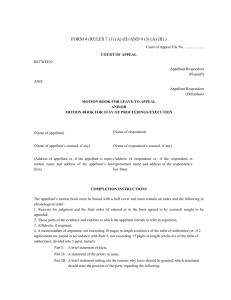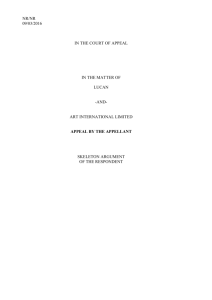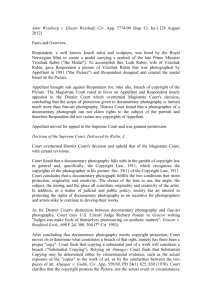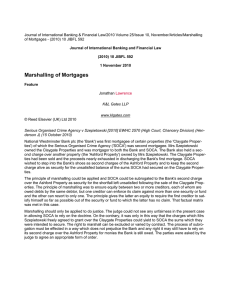Page 1
advertisement
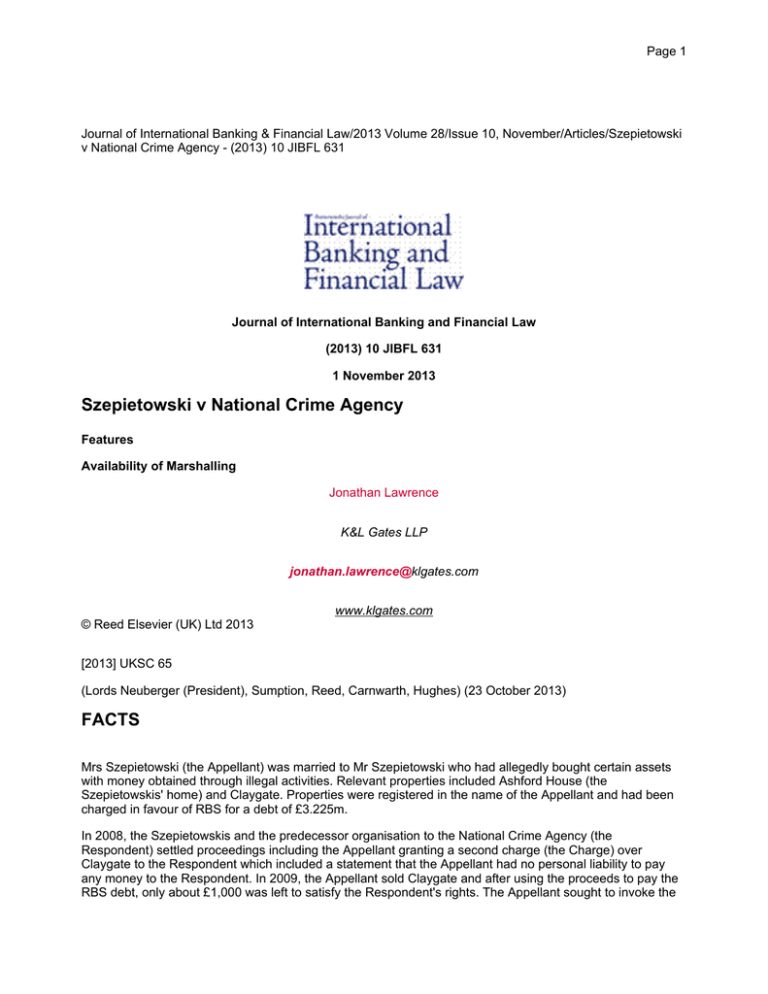
Page 1 Journal of International Banking & Financial Law/2013 Volume 28/Issue 10, November/Articles/Szepietowski v National Crime Agency - (2013) 10 JIBFL 631 Journal of International Banking and Financial Law (2013) 10 JIBFL 631 1 November 2013 Szepietowski v National Crime Agency Features Availability of Marshalling Jonathan Lawrence K&L Gates LLP jonathan.lawrence@klgates.com www.klgates.com © Reed Elsevier (UK) Ltd 2013 [2013] UKSC 65 (Lords Neuberger (President), Sumption, Reed, Carnwarth, Hughes) (23 October 2013) FACTS Mrs Szepietowski (the Appellant) was married to Mr Szepietowski who had allegedly bought certain assets with money obtained through illegal activities. Relevant properties included Ashford House (the Szepietowskis' home) and Claygate. Properties were registered in the name of the Appellant and had been charged in favour of RBS for a debt of £3.225m. In 2008, the Szepietowskis and the predecessor organisation to the National Crime Agency (the Respondent) settled proceedings including the Appellant granting a second charge (the Charge) over Claygate to the Respondent which included a statement that the Appellant had no personal liability to pay any money to the Respondent. In 2009, the Appellant sold Claygate and after using the proceeds to pay the RBS debt, only about £1,000 was left to satisfy the Respondent's rights. The Appellant sought to invoke the Page 2 right to marshal against Ashford House. CONCLUSION The Supreme Court allowed the Appellant's appeal and concluded that the Charge over Claygate did not create, or acknowledge the existence of, any debt from the Appellant to the Respondent, save that she was bound to pay the Respondent an amount up to £1.24m out of such sum if any, as remained from the proceeds of sale of Claygate after the RBS debt had been met. Ashford House was not available to satisfy the debt owed to the Respondent. The right to marshal applies when there are two or more creditors, each of whom is owed a debt by the same debtor, but one of whom has a charge on more than one property (the first mortgagee), whilst the other has a second charge on only one property (the second mortgagee). If the first mortgagee chooses to enforce his charge against the property which secures both debts, the second mortgagee is able to enforce his charge against the property which only secured the first mortgagee's debt. It was hard to conceive how marshalling would be available to the Respondent in circumstances where there was no surviving debt from the Appellant to the Respondent after the sale of Claygate. Even if this were not the case, the correct approach was to ask whether, in the perception of an objective reasonable bystander at the date of the grant of the second mortgage, taking into account: (i) the terms of the second mortgage; (ii) any contract or other arrangement which gave rise to it; and (iii) what passed between the parties prior to its execution, and (iv) all the admissible surrounding facts, it was reasonable to conclude that the second mortgagee was nonetheless not intended to be able to marshal.

